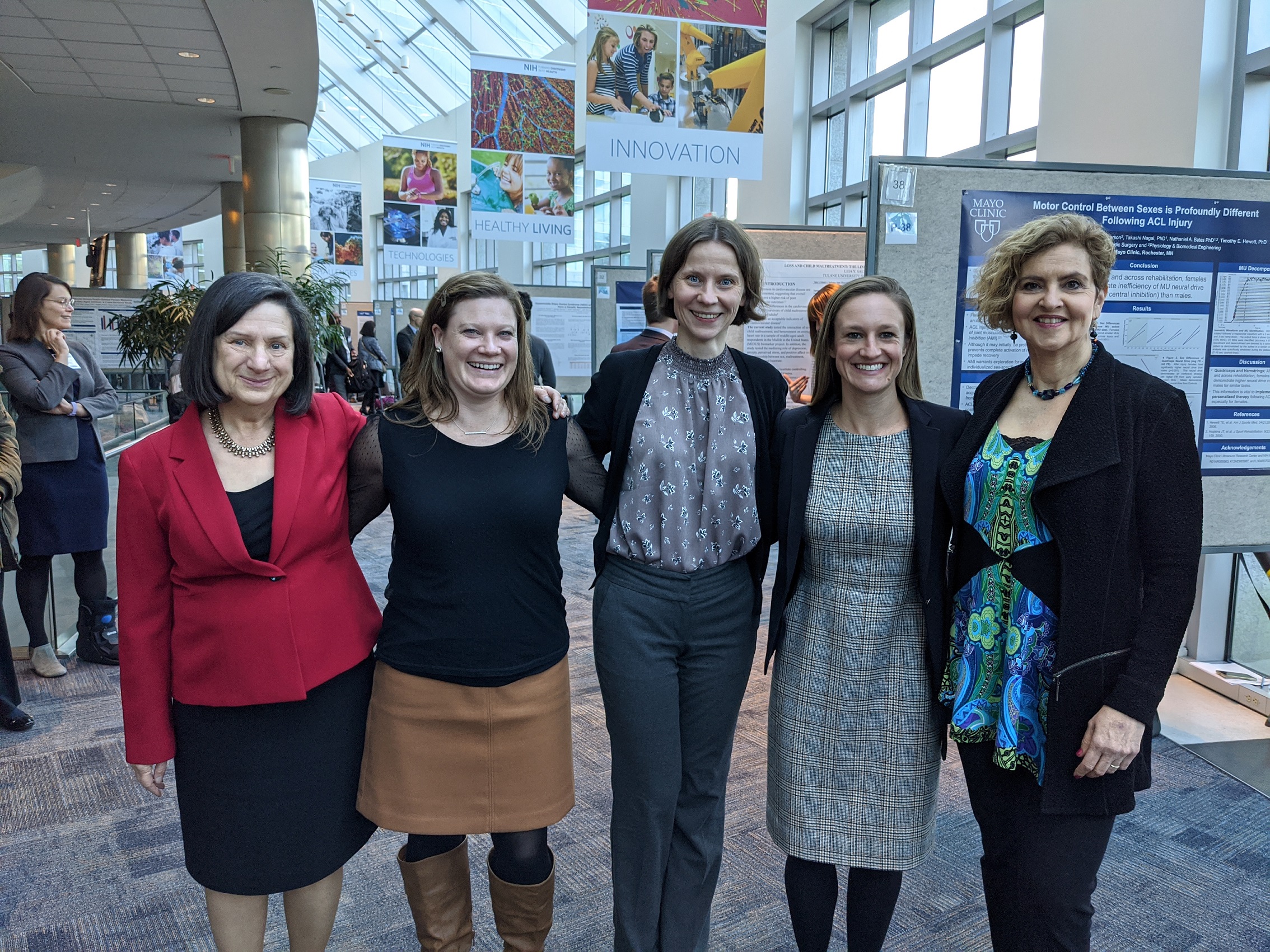
Building Interdisciplinary Research Careers in Women's Health (BIRCWH)
Introduction from the Office of Research on Women's Health:
The BIRCWH (pronounced "BIRCH") is a mentored career-development program. It connects junior faculty, known as BIRCWH Scholars, to senior faculty with shared research interest in women's health and sex differences research. Since the program was created in 2000, 77 grants to 41 institutions supporting more than 613 junior faculty have been awarded by ORWH and BIRCWH program co-sponsors.
To be eligible for the BIRCWH Program, junior faculty - men and women - must have recently completed clinical training or postdoctoral fellowship and must plan to conduct interdisciplinary basic, translational, behavioral, clinical, and/or health-services research relevant to women's health. Most BIRCWH Scholars move on to obtain independent NIH grant funding following their participation in the BIRCWH Program.
BIRCWH funding at the University of Colorado School of Medicine was first awarded in 2007. Our site funding has since been renewed twice.
The BIRCWH Program at the Ludeman Family Center for Women's Health Research provides career development awards to outstanding junior faculty members in key research areas relevant to women's health and sex differences. The BIRCWH Program's aim is to provide support to researchers in the early stages of their professional careers so they can achieve independent funding for their research. This critical support is combined with mentorship and training opportunities to promote success. As scholars are paired with senior investigators and an interdisciplinary mentoring team, they have access to a wealth of knowledge as they launch their research careers.
Focus Areas
The BIRCWH Program at the CU School of Medicine focuses on three key areas affecting women's health and/or sex differences across the lifespan from preconception to aging. All types of science (basic, clinical, translational, epidemiological, etc.) are acceptable.
- Pregnancy: Placentation, Lactation, Fetal and Neonatal Programming
- Immunology/Rheumatology/Inflammation
- Adult Health: Obesity, Menopause, Aging, Diabetes and Cardiovascular Disease (CVD)
These programs within the CU School of Medicine are highly collaborative, extending from molecular research into the basic mechanisms of disease through clinical studies to epidemiological analyses of etiology and outcomes.
Benefits of BIRCWH for the Scholar
Mentorship
All scholars have at least a primary and secondary research mentor, as well as additional mentors to supplement the areas in which they need further interdisciplinary training. Scholars meet with their primary mentor and other mentors regularly to discuss scientific issues related to their research.
In addition to meeting with mentors, Scholars at the CU SOM regularly meet with the BIRCWH PI to discuss progress and how to overcome barriers.
Individual Advisory Committee
The Scholar's individual advisory committee meets every six months. This meeting includes all of the Scholar's mentors, the BIRCWH PIs and co-PDs. At this meeting, the Scholar presents ongoing work and further directions are discussed, as well as progress and issues impeding progress.
Core Lab Facilities
Two unique laboratories/units are partially funded to make their facilities available to BIRCWH Scholars.
2020 Key DatesAnnouncement date: January 6, 2020 LOI deadline: February 3, 2020 Application deadline: March 2, 2020 (by invitation only) Award notification: March 30, 2020 |
Clinical Physiology Laboratory
Wendy Kohrt, PhD, Director
This facility provides a resource where Scholars and other interested individuals can learn to perform tests and procedures important to clinical research in cardiovascular disease, exercise and obesity including exercise testing and training, echocardiography, endothelial function, measurement of body composition, arterial stiffness, plethysmography, and fair assessment among others.
The Biostatistics / Research Design Core
This Core, featuring biostatistician John Rice, PhD, provides expertise in clinical trial methodology, novel recruitment strategies, and statistical analysis methodologies, including ethical issues and study designs. All BIRCWH Scholars work with a biostatistician to help with their study designs and analysis plans.
BIRCWH in the News
-
NIH Hosts Annual Meeting of the BIRCWH Program
Dec 16, 2019 byKeynote speaker Judith Regensteiner, Ph.D., delivered the Ruth L. Kirschstein Memorial Lecture, titled “Strategic Career Development: Charting the Course.”Full story

